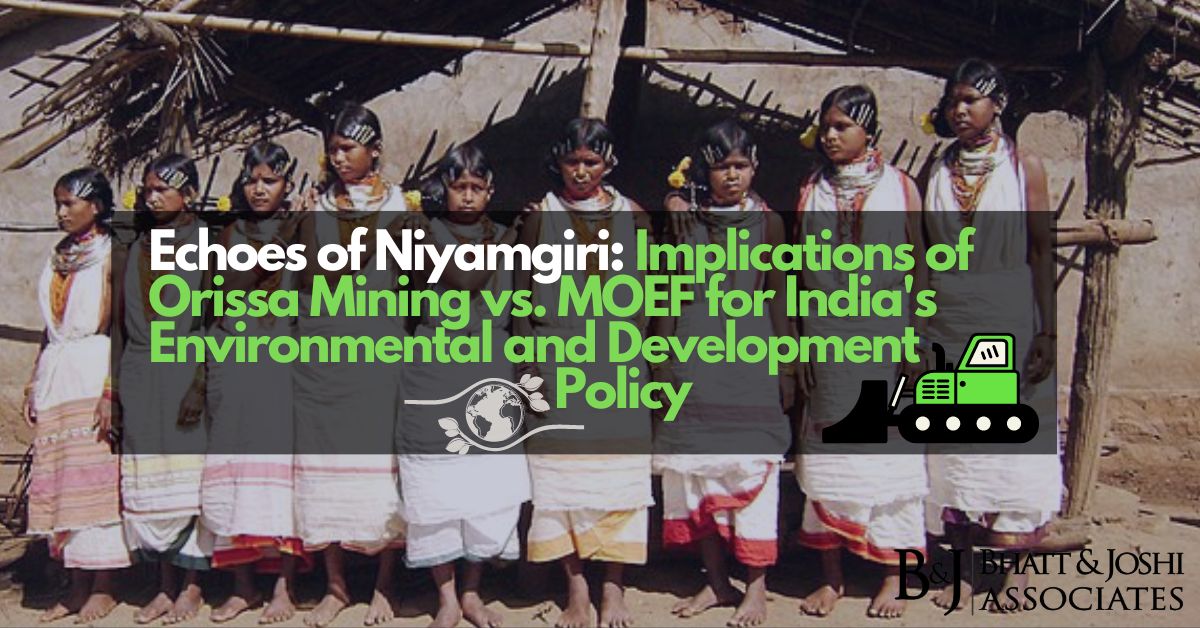Background
The Supreme Court’s verdict in the case of Orissa Mining Corporation Ltd vs Ministry Of Environment & Forest & Ors. reverberates far beyond the confines of the courtroom, leaving an indelible mark on India’s environmental governance, indigenous rights, and development policies. This article embarks on a comprehensive exploration of the immediate and far-reaching consequences of the Orissa Mining vs. MOEF Case judgement, dissecting its potential to reshape the legal and policy landscape in India beyond the confines of the courtroom.
The Immediate Aftermath: Niyamgiri Hills and Beyond
The Supreme Court’s refusal to grant forest clearance for bauxite mining in the Niyamgiri Hills stands as a monumental victory for environmental conservation efforts and the rights of indigenous communities, particularly the Dongria Kondh tribe.
Upholding Indigenous Rights: The Influence of the Orissa Mining vs. MOEF Case
The judgment sent a resounding message about the sanctity of tribal lands, underscoring the imperative need for consent from local communities before initiating projects that could have profound impacts on their environment and livelihoods.
A Precedent for Environmental Conservation
The decision’s unwavering support for the stringent application of the Forest Rights Act (FRA) and the Forest Conservation Act (FCA) establishes a formidable legal framework that shields India’s forests from unsustainable exploitation. This precedent sets the stage for a more robust defense against projects that could jeopardize the delicate balance of ecological systems.
Wider Implications: Shaping India’s Development Trajectory
The ramifications of the judgment extend far beyond the specific case, ushering in a paradigm shift towards more sustainable and inclusive development practices that consider both environmental and social dimensions.
Influencing Development: Orissa Mining vs. MOEF Case Cautionary Tale
The ruling acts as a potent cautionary tale for corporations and policymakers alike, emphasizing the inextricable link between economic development and environmental preservation. It mandates a departure from conventional approaches, requiring a more holistic evaluation of development projects that incorporates environmental impact assessments and community consultations as integral components of the planning process.
Empowering Local Governance and Participation
Affirming the role of Gram Sabhas and local governance structures under the Panchayats (Extension to Scheduled Areas) Act (PESA), the decision amplifies the decision-making power of indigenous communities over their natural resources. This not only sets a precedent but also serves as a model for participatory governance, empowering local communities to actively engage in decisions that directly impact their lives.
Future Trajectory: Orissa Mining vs. MOEF Case Roadmap
The Orissa Mining Corporation Ltd vs Ministry Of Environment & Forest & Ors. judgment provides a roadmap for India to balance its development aspirations with environmental sustainability and social equity, offering guidance on natural resource management and industrial projects.
Challenges and Opportunities
While the judgment lays down clear guidelines, its implementation presents challenges that necessitate robust mechanisms for compliance and effective enforcement. Addressing these challenges opens up opportunities for the development of sustainable models that leverage India’s rich biodiversity and cultural heritage. This creates room for innovation in green technologies and community-based conservation strategies, fostering a more symbiotic relationship between development and environmental well-being.
Conclusion: Orissa Mining vs. MOEF Case Paradigm Shift
The Supreme Court’s judgment in the Orissa Mining case signifies a watershed moment in India’s environmental and development policy discourse. By aligning legal principles with ecological and social realities, the ruling charts a course towards a more sustainable and just development paradigm. It reinstates the principle that true development is not solely measured by economic output but by the overall well-being of all stakeholders, including the environment and the most marginalized communities. As India continues its journey of development, the principles upheld in this case become instrumental in ensuring that progress does not come at the expense of the planet or its people. The Niyamgiri verdict is not merely a legal decision; it is a catalyst for transformative change, urging the nation to reevaluate its development trajectory and champion a future where ecological sustainability and social justice are integral to the fabric of progress. In embracing this new paradigm, India has the opportunity to serve as a global exemplar for responsible and inclusive development in the 21st century.














